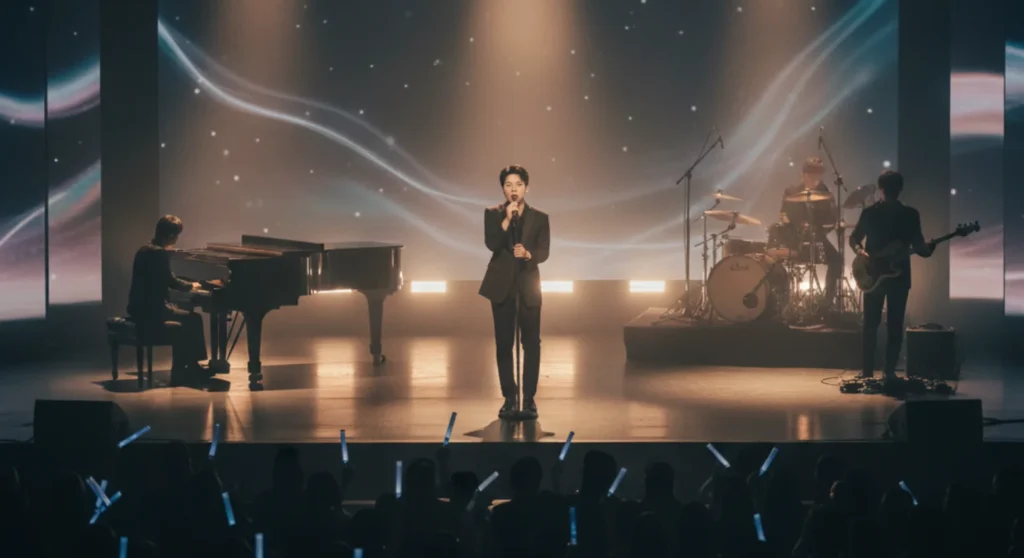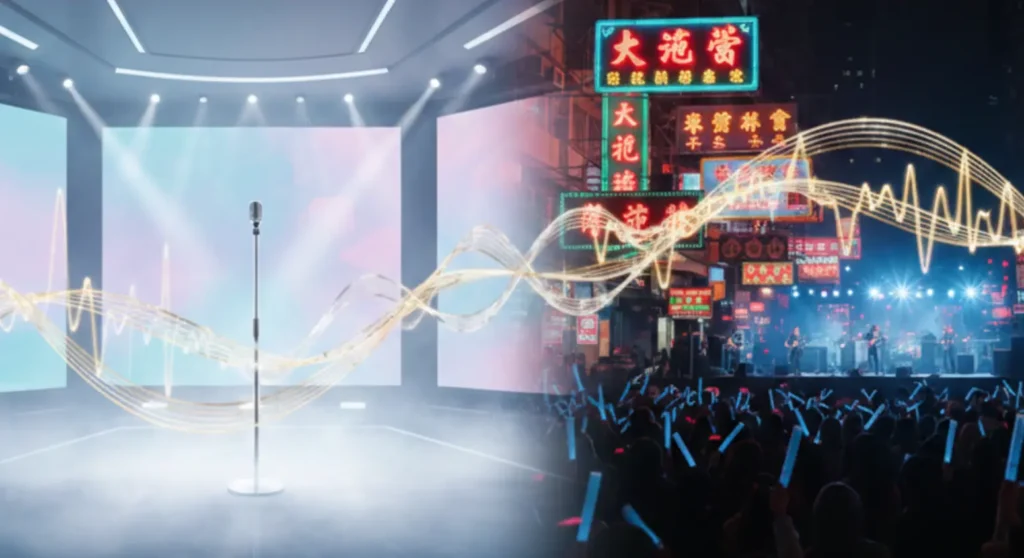In Chinese culture, music isn’t just for fun. It’s a big part of how people celebrate, connect, and pass down stories. From small village gatherings to huge musical festivals in China, the sounds you hear carry deep meaning and tradition.
This blog will take you through the role of Chinese festival music—how it started, the instruments that make it special, and how it’s changing today. Whether you’re a fan of Chinese music, curious about festivals, or just love learning new things, you’ll find something interesting here.
Quick Answer:
Music is the heart of Chinese festivals—it brings people together, tells cultural stories, and keeps traditions alive. From powerful drums to gentle strings, festival music reflects history while evolving with modern sounds. That blend of old and new is what makes Chinese celebrations feel meaningful, joyful, and unforgettable.
Table of Contents
1. Historical and Cultural Significance of Music in Chinese Celebrations
Have you ever wondered why music plays such a big role in every Chinese festival? It’s not just there for fun. In fact, music has been a part of Chinese celebrations for thousands of years. It helps tell stories, bring people together, and keep traditions alive.
Music in Ancient Times
Long ago, music was more than just something to enjoy—it was deeply connected to daily life, nature, and even the heavens. Emperors and wise leaders believed that the right music could bring peace and balance to society. That belief shaped how music became a key part of important celebrations.
Some common ways music was used in ancient China:
- At seasonal festivals to mark changes in nature
- During royal ceremonies to show respect and honor
- With instruments like bells, chimes, and stringed zithers that were thought to create harmony
So, when you hear traditional tunes during a celebration, you’re hearing the echo of ancient values and beliefs.
Local Music, Local Stories
China is a big country, and each region has its own sounds and styles. These folk traditions grew in China small villages and towns, where music was used to tell everyday stories—like working in the fields, falling in love, or celebrating a good harvest.
Here’s how it sounds in different places:
- In the north: loud, powerful music with big drums and gongs
- In the south: soft, flowing melodies played on flutes and strings
This mix of styles is what makes Chinese music during festivals so colorful and unique.
Why It Still Matters Today
Even though the world has changed a lot, traditional chinese music still plays an important role in Chinese festivals. It helps:
- Bring people together
- Pass traditions to younger generations
- Add meaning and rhythm to the celebration
Whether you’re at a small village gathering or a big Chinese musical festival, you’re hearing more than just music—you’re hearing history.
2. Signature Festivals and Their Unique Musical Traditions
When you think about a Chinese festival, what stands out first? The food? The fireworks? Maybe the colorful clothes? But if you pause and really take it in, you’ll notice something else just as important—the music. It’s everywhere, setting the mood, telling stories, and bringing people together.
Let’s take a closer look at some of China’s most popular festivals and the music that makes each one come alive.
Chinese New Year: A Loud and Joyful Beginning
Chinese New Year, also known as the Spring Festival, is the most important celebration in China. And music is at the heart of it.
- You’ll hear drums and gongs during lion and dragon dances, meant to scare away bad spirits.
- Traditional songs are played in shops, homes, and on TV, wishing everyone a lucky and happy year.
- Families gather around to sing festive tunes that mix old traditions with modern sounds.
Whether you’re in a big city or a small village, the energy of Chinese festival music is everywhere during this time.
Dragon Boat Festival: Music That Moves with the Water
At the Dragon Boat Festival, the beat of the drum is more than just music—it’s a guide. A drummer sits at the front of each racing boat, helping the rowers stay in sync.
Aside from the race, you’ll hear:
- Local songs sung along the riverbanks
- Regional music styles that vary from place to place
- Live performances that celebrate the story of Qu Yuan, the poet behind the festival
It’s a celebration full of rhythm, tradition, and pride.
Mid-Autumn Festival: Gentle Sounds Under a Full Moon
The Mid-Autumn Festival is about family, togetherness, and reflection. Naturally, the music is soft and meaningful.
- Traditional Chinese instruments like the guzheng and erhu are used to play peaceful melodies.
- Songs often focus on the moon, home, and missing loved ones.
- At parks and community centers, you might hear modern versions of these songs that still carry the same deep feeling.
The music creates a warm, calming atmosphere that matches the spirit of the festival.
Lantern Festival: Ending with Light and Sound
The Lantern Festival wraps up the New Year celebrations with joy and color. Music plays a big part in keeping the festive mood alive.
- You’ll hear children’s songs, lively tunes, and traditional performances.
- Community dances are often paired with cheerful music from drums and flutes.
- Some towns even host music competitions or outdoor concerts as part of the fun.
It’s a beautiful ending to weeks of celebration, with music lighting the way.
Each of these festivals shows how important Chinese music is to the celebration. From loud drums to gentle strings, every sound adds emotion and meaning. Music doesn’t just play in the background—it helps tell the story of the festival itself.
Did you know?
In ancient China, music was believed to keep the universe in balance, and emperors carefully chose festival music because they thought the right sounds could bring peace and harmony to society.
3. Traditional Instruments That Shape the Festive Soundscape
Have you ever wondered what makes Chinese festival music sound so unique and unforgettable? A big part of that comes from the traditional instruments used during celebrations. These instruments are more than just tools—they carry history, culture, and emotion in every note.
Let’s take a closer look at some of the key instruments that bring Chinese festivals to life and why they matter so much.
Drums and gongs are often the first sounds you’ll notice at a Chinese festival. Their loud, steady beats grab your attention and build excitement.
- Drums set the pace for lion dances and dragon boat races, helping performers and participants keep in rhythm.
- Gongs signal important moments during ceremonies or parades.
- Their powerful sounds are believed to chase away bad spirits and invite good luck.
The energy these percussion instruments bring is hard to miss—they create a sense of unity and excitement that pulls everyone into the celebration.
If you’ve heard soft, flowing melodies at a festival, they likely came from string instruments like the erhu or guzheng.
- The erhu, sometimes called the Chinese violin, has just two strings but can sound both sad and joyful.
- The guzheng is a plucked zither with many strings, known for its bright, harp-like tone.
- These instruments add feeling and depth, perfect for the more reflective parts of a festival.
They balance the loud drums and gongs with gentle, emotional sounds, creating a rich musical experience.
Wind instruments like the dizi (a bamboo flute) and suona (a double-reed horn) add life and brightness to festival music.
- The dizi is light and airy, often playing fast, happy tunes during dances and parades.
- The suona has a loud, sharp sound that carries well outdoors, perfect for big celebrations.
- Together, they bring energy and joy that can instantly lift the mood.
One of the most amazing things about Chinese festival music is how these instruments come together. Imagine a parade where drums keep the beat, gongs mark special moments, wind instruments add excitement, and strings bring emotion. This mix creates a sound that’s lively, moving, and unforgettable.
So next time you’re at a Chinese musical festival or listening to Chinese festival music, take a moment to notice the instruments. Each one plays a special role and carries centuries of tradition, connecting people, history, and celebration all at once.
Explore: Traditional vs. Modern: Exploring the Fusion of Chinese Instruments with Electronic Tools
4. How Music at Chinese Festivals Is Changing Today
Have you noticed how music at Chinese festivals today mixes old traditions with new sounds? While the classic tunes and instruments are still very important, many festivals now include modern music too. But why is this happening, and what does it mean for the celebrations?
Keeping Tradition Alive with New Sounds
More and more, festivals are adding popular music and modern styles alongside the traditional performances. This helps:
- Bring in younger people who might not listen to old songs
- Make the festivals feel fresh and exciting without losing their roots
- Create new ways to express culture that fit today’s world
For example, during Chinese New Year, you might hear traditional instruments playing together with pop songs or electronic beats. This mix makes the music feel familiar but also new and fun.
Bigger and More Exciting Music Festivals
China now hosts many big music festivals that celebrate both traditional and modern music. At these events, you can find:
- Performances of old folk songs and modern pop or electronic music
- International artists playing alongside local musicians
- Workshops that teach people about traditional Chinese music festival styles
These festivals are places where old and new come together in creative ways.
Technology Is Changing the Way We Experience Festival Music
Technology is also making a big difference in how people enjoy music at festivals. Things like live streaming, better sound systems, and electronic instruments help bring the music to more people.
- You can watch festival concerts live online, even if you’re far away.
- Electronic instruments add new sounds to traditional music.
- Social media helps share news and videos about festivals and their music.
This means more people around the world can join in the fun and learn about Chinese festival music.
Why This Mix of Old and New Matters
You might ask, why is it important to mix modern music with traditional festival songs? Here’s why:
- It helps keep traditions alive by making them interesting to younger generations.
- It encourages new ideas and cultural sharing.
- It makes sure the music keeps growing and doesn’t get stuck in the past.
By blending the old with the new, Chinese festivals stay lively, meaningful, and exciting for everyone.
So whether you’re at a traditional Chinese musical festival or a modern event mixing styles, you’re part of a story that keeps growing. Festival music in China isn’t just about history—it’s about celebrating and connecting, no matter the time.
Also Read: How Guqin Music Influenced Chinese Culture and Philosophy
Conclusion: Why Music Makes Chinese Festivals So Special
Music is much more than just sounds at a Chinese festival—it’s the heart that brings every celebration to life. Have you ever stopped to really listen during these joyful events? The mix of old traditional beats and new modern sounds creates something that connects us to history, culture, and each other in a powerful way.
Whether it’s the strong drums at the Dragon Boat Festival, the soft songs at the Mid-Autumn Festival, or the lively music at a big Chinese music festival, the music tells a story. It welcomes us and makes us feel part of something bigger. As the music changes and grows, mixing the past with the present, it helps keep these festivals alive and meaningful for everyone, young and old.
So next time you’re at a musical festival in China or celebrating the Chinese New Year, take a moment to really listen. How does the music make you feel? How does it connect you to the people and traditions around you? That’s the real power of Chinese festival music—it’s not just something you hear, it’s something you feel. And that feeling is what makes every festival truly special.
FAQs
Why is music so important in Chinese festivals?
Music helps bring people together, express joy, and pass down traditions. It’s believed to bring good luck, harmony, and positive energy during celebrations.
What types of music are commonly played at Chinese festivals?
You’ll hear a mix of traditional folk music, ceremonial tunes, and modern songs. Drums, gongs, flutes, and string instruments are especially common.
Which instruments are most popular in Chinese festival music?
Drums, gongs, erhu, guzheng, dizi (bamboo flute), and suona are widely used to create festive and meaningful sounds.




